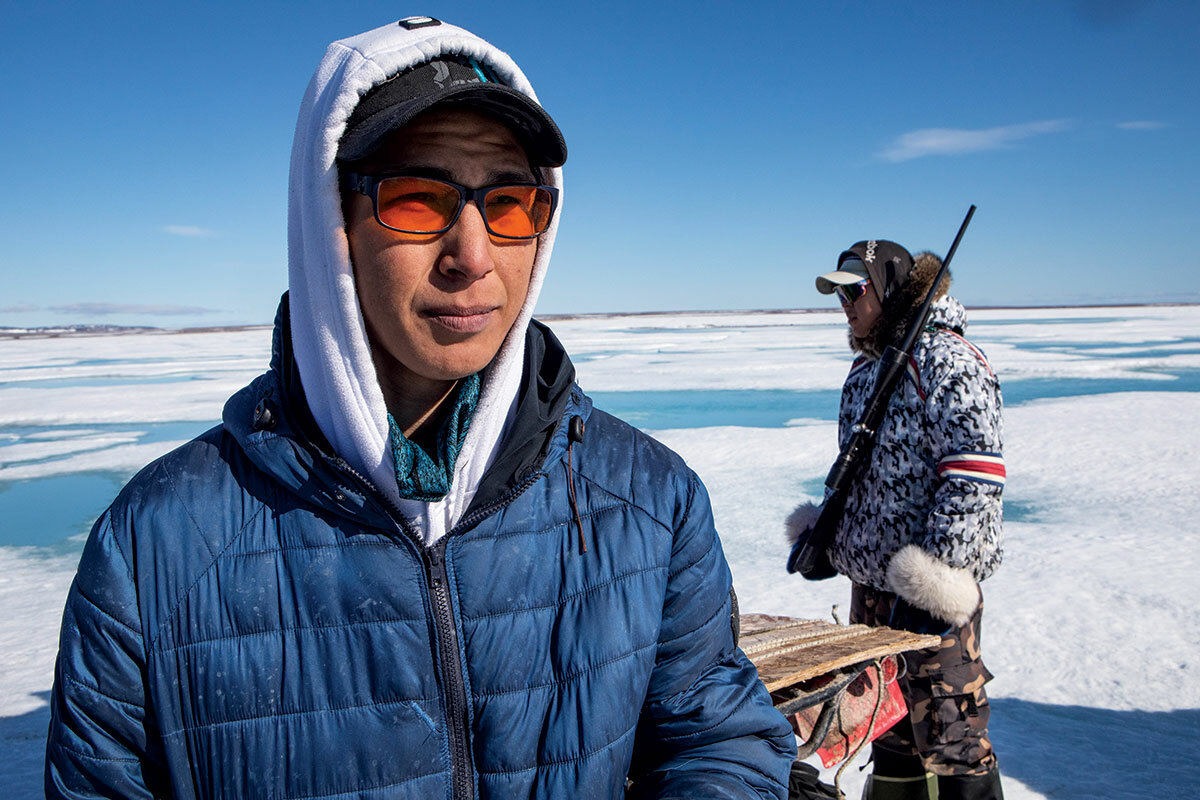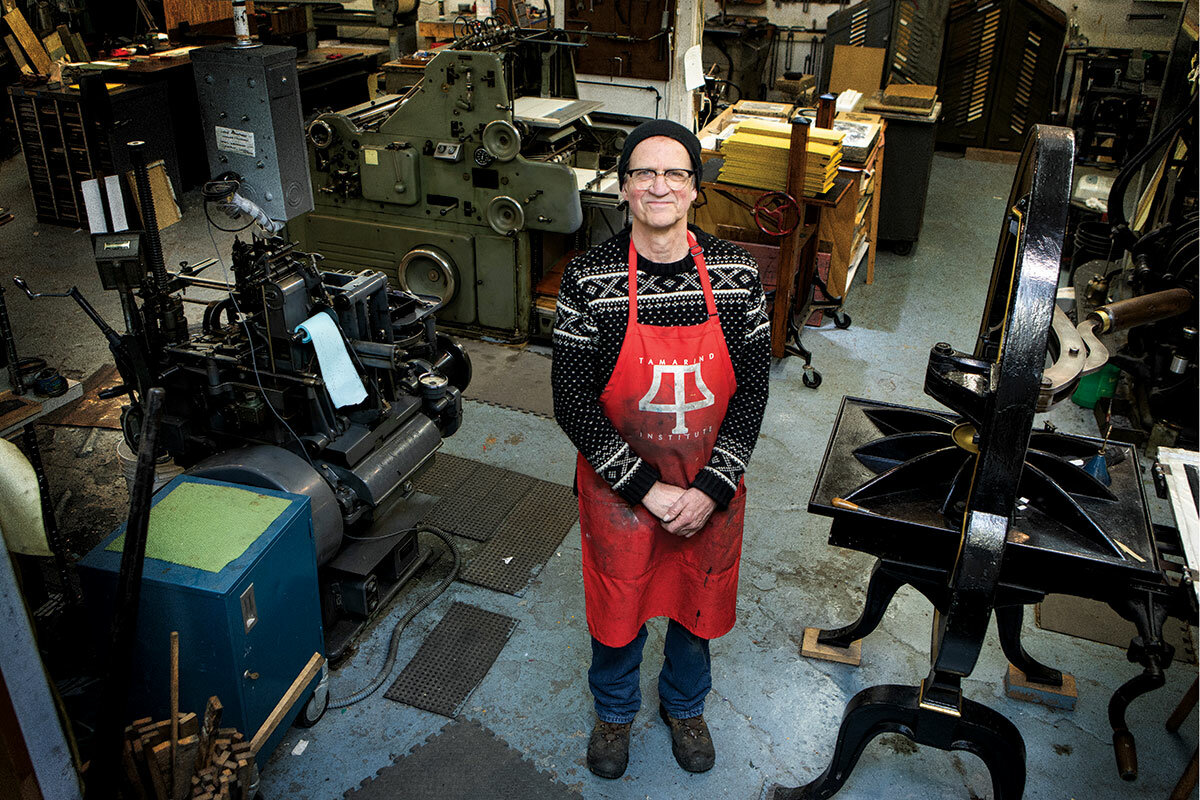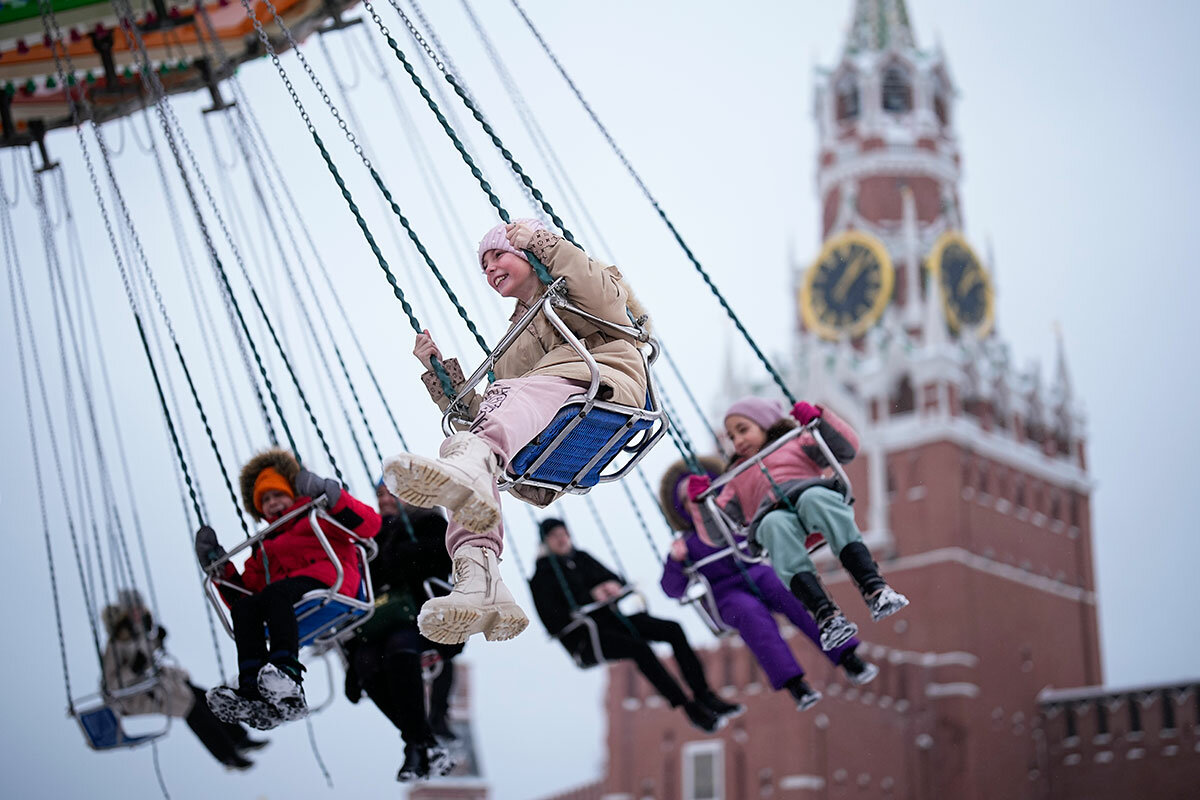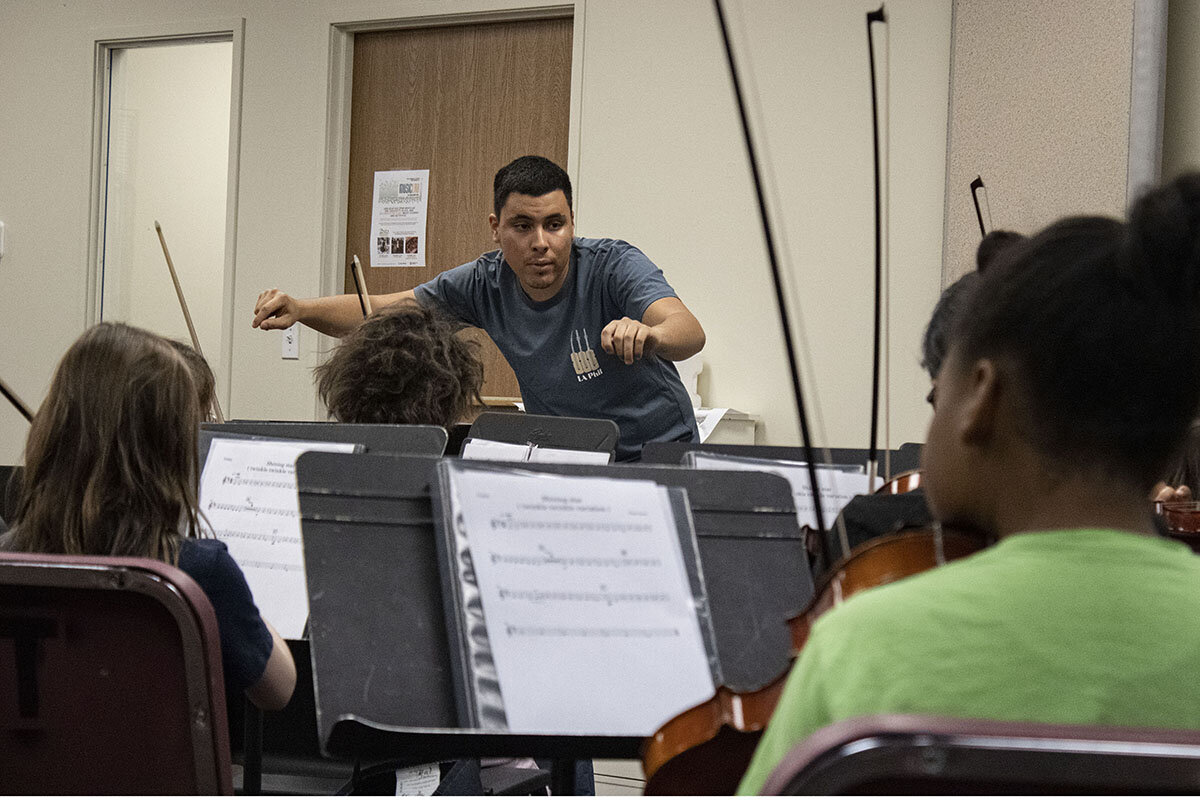In the Canadian Arctic, locals speak of a “right to be cold.” How is that possible in a warming world? The work of the Indigenous Guardians is a start.

Why is Christian Science in our name?
Our name is about honesty. The Monitor is owned by The Christian Science Church, and we’ve always been transparent about that.
The Church publishes the Monitor because it sees good journalism as vital to progress in the world. Since 1908, we’ve aimed “to injure no man, but to bless all mankind,” as our founder, Mary Baker Eddy, put it.
Here, you’ll find award-winning journalism not driven by commercial influences – a news organization that takes seriously its mission to uplift the world by seeking solutions and finding reasons for credible hope.
Explore values journalism About usMonitor Daily Podcast
- Follow us:
- Apple Podcasts
- Spotify
- RSS Feed
- Download
 Mark Sappenfield
Mark Sappenfield
This morning, Monitor writer Sara Miller Llana and I were comparing notes about daughters. Ours are about the same age and, like so many in their generation, have both expressed fears about climate change. But when Sara traveled the world to interview the young people most affected by climate change, she discovered something curious.
“There was not a single one paralyzed by fear of what was ahead,” she says.
They know climate could profoundly determine their futures – from hunger to child marriage. But they are busy trying to change the future. This was her takeaway from the Climate Generation series, which ends today.
“Had I not talked to them in-depth, maybe I would feel sorry for them,” Sara says. “But I learned they do not live their lives as victims.”
Already a subscriber? Log in
Help fund Monitor journalism for $11/ month
Monitor journalism changes lives because we open that too-small box that most people think they live in. We believe news can and should expand a sense of identity and possibility beyond narrow conventional expectations.
Our work isn't possible without your support.
Today’s stories
And why we wrote them
A deeper look

( 17 min. read )
( 5 min. read )
Even as food inflation slows, sugar prices are still rising. Should the government continue heavily subsidizing sugar farmers even as customers pay more? It’s a question of fairness.
( 6 min. read )
We’re trying something different with this story about a Venezuelan conductor who has found purpose teaching at a music school in Denver. The author, Sarah Matusek, has done a full read of the article for audio. Please click through to the deep read to find it.

( 5 min. read )
In a time of computers, what can someone do with centuries-old letterpress machines? Some pretty innovative work, actually.
In Pictures
( 3 min. read )
Life in the Canadian Arctic is decidedly hard. But our reporting team found that it is made easier by the spirit of community and shared purpose embraced by Indigenous villagers.
The Monitor's View
( 3 min. read )
In Argentina, a new president who promised radical disruption on the campaign trail has taken a more cautious, centrist approach as he starts to govern. In Chile, citizens demanding a new constitution last night rejected the second attempt at drafting one. And in Guatemala, an anti-corruption president-elect is locked in battle with judges and prosecutors trying to block him from taking office next month.
The transitions unfolding from one Latin American country to the next tell different stories – of the moderating effect of democracy, for instance, or the pursuit of healing and reconciliation from harmful pasts. Yet together they weave a more singular narrative of a region restoring trust through civic values.
“Surveys on Latin American youth tell us that many don’t believe in political parties, they don’t believe in political institutions,” Carolina Jiménez Sandoval, president of the Washington Office on Latin America, told El País recently. “But they believe in political participation, which is something entirely different. They, as agents of change, can influence the future of their own stories and the issues that matter to them: the environment, gender equality, etc.”
Voting is the most obvious form of political participation. In Latin America, however, where casting ballots is mandatory in most countries, it is not the most reliable measure of citizen confidence. The latest survey by Latinobarómetro found that only 48% of people in the region support democracy – down from 63% in 2010.
But several trends point to the growing strength and influence of civil society across Latin America. Younger citizens, women, and Indigenous groups are behind gains in equality, access to justice, and the election of candidates promising to boost economic opportunity by rooting out corruption.
That activism underscores one way that trust is built through democratic participation. In countries with low levels of public trust in government and political parties, the World Bank notes, citizens develop more robust forms of social capital to seek change. That explains Chileans’ strong desire for a new constitution yet rejection of drafts that tilted too far in one political direction or the other.
It may also be a reason for President Javier Milei’s more cautious start in Argentina. Since taking office on Dec. 10, he has backed off his more controversial proposals, like shutting down the Central Bank, and appointed experienced centrists to stabilize an economy in crisis.
As Patricio Navia wrote in Americas Quarterly, Mr. Milei may be taking a note from Chile and Colombia, where incoming presidents faced quick public backlash for seeking change too quickly. Argentines elected Mr. Milei “not because they truly believed in his economic program but because they thought the incumbent status quo was untenable,” wrote Dr. Navia, a political science professor at Diego Portales University in Chile.
“Overall, democratic processes and institutions are shifting towards higher citizen engagement and civil society inputs are increasingly being taken into consideration,” said Julia Keutgen, program manager at International IDEA. The effect of increased civic participation is a cultural shift in democratic institutions, she wrote in a blog post for Institut Montaigne, “one that favors transparency and openness and acknowledges the relevance of public opinion.”
Latin Americans are shaping a new era of democracy through engaged skepticism, building trust and equality through self-government and common good.
A Christian Science Perspective
Each weekday, the Monitor includes one clearly labeled religious article offering spiritual insight on contemporary issues, including the news. The publication – in its various forms – is produced for anyone who cares about the progress of the human endeavor around the world and seeks news reported with compassion, intelligence, and an essentially constructive lens. For many, that caring has religious roots. For many, it does not. The Monitor has always embraced both audiences. The Monitor is owned by a church – The First Church of Christ, Scientist, in Boston – whose founder was concerned with both the state of the world and the quality of available news.
( 3 min. read )
Prayer that’s based on the spiritual facts of being opens us to healing.
Viewfinder

A look ahead
Thank you for joining us today. Tomorrow, we’ll introduce you to the Post-Evangelical Collective. These are Christians kicked out of their churches who aren’t willing to give up their faith.
And please let us know if you listened to the full audio read of the story about the Venezuelan conductor – and what you thought of it. You can reach me at editor@csmonitor.com.






